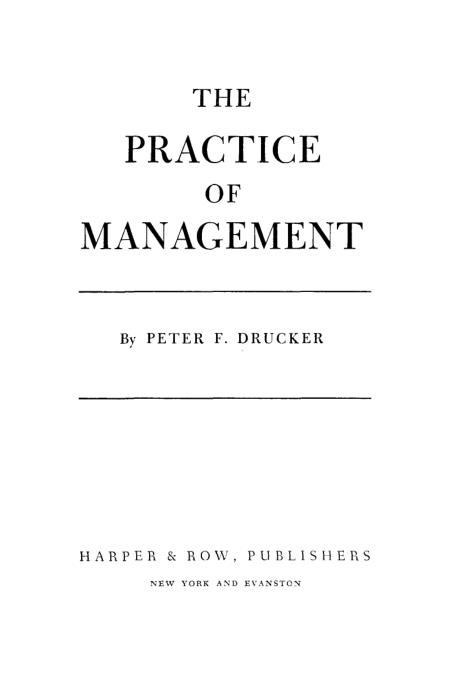Drucker Peter's Essential Leadership Principles for Modern Managers
Guide or Summary:Empowering Individuals and TeamsFocus on Results, Not EfficiencyInnovation and Continuous ImprovementEffective CommunicationIn the ever-evo……
Guide or Summary:
- Empowering Individuals and Teams
- Focus on Results, Not Efficiency
- Innovation and Continuous Improvement
- Effective Communication
In the ever-evolving landscape of business and management, the insights and principles laid down by Peter Drucker, one of the most influential management thinkers of the 20th century, continue to resonate with modern managers. Drucker's ideas, encapsulated in his numerous books and articles, offer timeless wisdom that transcends the specific contexts of his era. This article delves into Drucker Peter's essential leadership principles, highlighting how they can be applied to contemporary management challenges.
Empowering Individuals and Teams
At the heart of Drucker's philosophy is the idea that organizations are built around people. He emphasized the importance of empowering individuals and fostering a sense of purpose and responsibility within teams. Drucker's concept of "management by objectives" encourages managers to set clear, achievable goals for their teams, aligning individual efforts with organizational objectives.
In today's fast-paced business environment, where agility and innovation are paramount, Drucker's emphasis on empowerment becomes even more relevant. Managers who adopt Drucker's principles can create a culture of trust and collaboration, where employees feel valued and motivated to contribute their best. This, in turn, can lead to increased productivity, higher job satisfaction, and a stronger organizational commitment.

Focus on Results, Not Efficiency
Drucker famously stated that "results are the only valid measure of management performance." This principle challenges the traditional focus on efficiency and productivity, which often leads to short-term gains at the expense of long-term objectives. Drucker's emphasis on results-driven management encourages managers to prioritize outcomes that matter most to their organization and its stakeholders.
In the context of modern management, this means shifting the focus from process optimization to outcome achievement. Managers should regularly assess their activities and resources to ensure they are contributing effectively to the organization's strategic goals. By aligning efforts with results-oriented objectives, managers can foster a more strategic and purposeful approach to their work.
Innovation and Continuous Improvement
Drucker recognized the critical role of innovation in organizational success. He argued that innovation is not just about developing new products or services but also about continuously improving existing ones. Drucker's emphasis on innovation encourages managers to foster a culture of creativity and experimentation within their organizations.

In the age of digital transformation, where technology and market dynamics are constantly evolving, the importance of innovation cannot be overstated. Managers who embrace Drucker's principles can lead their organizations through periods of change and uncertainty by encouraging creative thinking and adapting to new opportunities and challenges.
Effective Communication
Effective communication is another cornerstone of Drucker's leadership philosophy. He believed that communication should be a two-way process, with both managers and employees actively listening and speaking. Drucker's emphasis on open and transparent communication fosters trust and understanding within organizations.
In the context of modern management, effective communication is more important than ever. The rise of remote work and digital collaboration tools has highlighted the need for clear and effective communication across all levels of an organization. Managers who follow Drucker's principles can create a communication environment that is inclusive, collaborative, and supportive of innovation and growth.

Peter Drucker's leadership principles offer a valuable framework for modern managers. By focusing on empowering individuals and teams, prioritizing results over efficiency, fostering innovation and continuous improvement, and promoting effective communication, managers can navigate the complexities of today's business landscape. Drucker's timeless insights continue to provide a compass for leaders seeking to build resilient, adaptive, and successful organizations.
In integrating Drucker's principles into their management practices, modern managers can unlock the full potential of their teams and organizations. By embracing Drucker Peter's essential leadership principles, they can lead with purpose, drive innovation, and achieve sustained success in an ever-changing world.